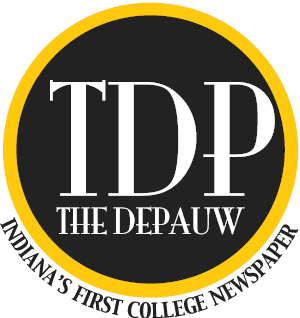
If any professor on DePauw University’s campus is suited to answer questions about the presidential election process, it's Bruce Stinebrickner, political science professor.
Stinebrickner will give a talk about the current presidential primary system that led Hillary Clinton and Donald Trump to be nominated and what this result means for the general election. The event is sponsored by the Greencastle League of Women Voters and is titled, “2016 Presidential Selection Process: Looking Back, Looking Ahead.” It will take place at 7 p.m. tonight in St. Andrew’s Episcopal Church on Seminary Street.
There were a number of hopefuls, mainly on the Republican side, who had a chance at becoming the presidential nominee this election cycle. “You can imagine a case of Bernie Sanders against Ted Cruz or Bernie Sanders against John Kasich, or any number of combinations; how did this system cough up Donald Trump and Hillary Clinton? I want look back at what led these two to be finalists but also look ahead at the general election,” Stinebrickner said.
Stinebrickner plans to emphasize research from other political scientists that critique the United States’s unique nomination system. “I'm not going to just repeat what talking heads say on television, speaking about maneuvers to beat Cruz or any of that empty conversation. The real issue at hand is how the system is designed in such a way that these outcomes occurred,” said Stinebrickner, “I want to put other [countries’] systems against ours, and ultimately criticize the U.S. system.
Stinebrickner will not only comment on the current system, but also the nature of U.S. political parties. “In any other country in the world, Trump could never be a nominee. American parties are weird. Both Trump and Clinton had highly unfavorable ratings, demeaned themselves, demeaned each other, and said things that made groups of people angry. How did our present system make these the nominees?” said Stinebrickner. He will also give his opinion on the possible upcoming presidencies during his lecture.
Stinebrickner was approached by the Co-President of the Greencastle League of Women Voters, Leslie Hanson, after Hanson saw an article written by Stinebrickner in the Banner Graphic. “This will be an opportunity to ignite conversation about how we choose presidential candidates since a lot of people are questioning what’s working and what’s not,” Hanson said.
The League of Women Voters is a national, nonpartisan organization founded just after women were given the right vote in 1920. It is an education and advocacy group, which is especially active during a presidential election year to promote active participation in democracy. The Greencastle chapter has about 25 active members.
“I want to introduce some political science to them. Some people just want to come and hear things repeated from what they hear on CNN. Instead of that, I’m trying to educate using political science,” said Stinebrickner. Although Stinebrickner specializes in public policy and state and local government, the presidential nomination process is a secondary research focus for him.
Senior Claudia Monnett will be attending the lecture. “In Presidential Selection Process, a class he taught last year, it quickly became obvious that Stinebrickner’s knowledge of the American political system is extensive,” said Monnett, “His lectures are always engaging, if not downright hilarious.”
